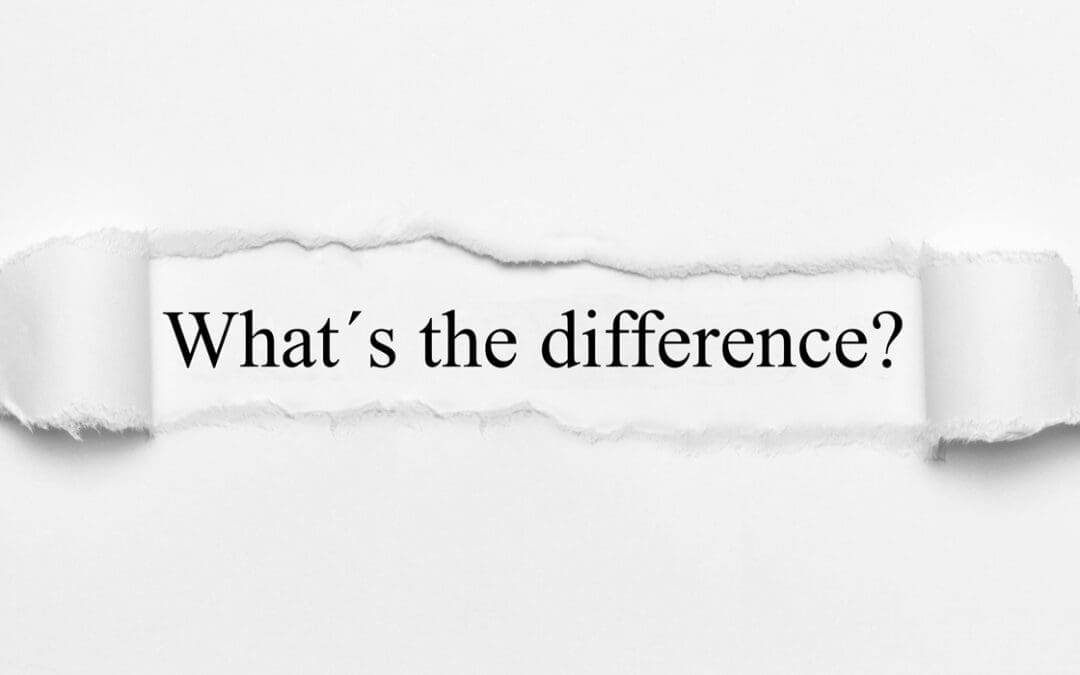Do All “Christian” Groups Believe Essentially the Same Things?
I recently got this question on an online Q&A site I write for:
Aren’t Christians and Catholics just two sides of the same coin with only minor differences in ideology?
Here’s my answer: I’m not sure who you are including as “Christians”, but I can tell you as an evangelical Christian and teacher of biblical theology the differences between evangelicals and the Roman Catholic Church are HUGE.
Evangelicalism is based on two premises, both of which the RCC opposes: 1. Evangelicals believe in the absolute authority of the Bible. We believe as the Apostle Jude wrote that “the faith”, i.e. Christianity was “once for all given to God’s holy people” (Jude 3). So when Jesus promised the Holy Spirit was going to come at his departure and “lead the apostles into all truth” (John 16:13) and “bring everything to their remembrance” (John 14:26), evangelicals believe the apostles under the influence of the Holy Spirit wrote down the NT scripture, which is God’s very Word. It’s not that we think this, it’s the view of Jesus’ apostles themselves. (2 Tim. 3:16; 2 Pet. 1:19–21; 1 Thess. 2:13 etc.). The Scripture is “God breathed”, a Hebraism that means “created by God”, and the authors were “carried along by the Holy Spirit” as they wrote, the very definition of “verbal plenary inspiration”. The RCC claim that they preceded the Bible and in fact “gave us the Bible” is nonsense. The Old Testament was settled canon before Jesus’ time and He constantly referred to it as authoritative. The New Testament canon was written by Jesus’ apostles and close associates between 50—90 AD. The RCC in anything remotely resembling its current form evolved in the dark ages and continues to morph and change until our day.
- Evangelicals also believe that “salvation”, i.e. being made right with God and fit for heaven, is on the basis of grace (i.e. a free gift) and on the condition of faith in Jesus. (John 1:12; Eph 2:8–9, Gal. 2:16, John 3:16, etc). Scores and scores of times in the NT’s most important writings, like the Gospel of John, Epistles of Romans, Galatians, Ephesians, and elsewhere, this is insisted upon. In fact grace and works (merit) are completely incompatible as a cause of salvation. (Titus 3:5, Rom 11:6). The Apostle Paul is emphatic the NT book of Galatians that anyone who teaches a works based, performance based, way of salvation is a false teacher who should be damned. (Gal. 1:6–9). A significant portion of the NT is devoted to calling out and condemning the false teachers who in the mid first century were already trying to add to faith in Jesus, obedience to the Jewish Law and traditions, or practicing forms of asceticism, or the initiation into secret knowledge societies, etc., creating what Paul called “a different gospel which is no gospel at all”. There’re real reasons why the RCC hierarchy kept the NT scripture from people for as long as they could, kept it in a language common people could not read (Latin) and closely guarded in their cathedrals or universities. And there are real reasons those who first tried, and fortunately some who succeeded in breaking that stranglehold over common people’s access to the Bible, were persecuted, labeled “heretics”, and burned at the stake, as were heroes of the Christian faith like John Wycliffe, William Tyndale, Martin Luther, and others. But once people got access to the NT for themselves that spell was broken, Protestantism was born and grew like wildfire. The truth of God’s Word set people free, and is still setting Catholics free to this day when they get into it.
On both these foundational points the RCC is a false religion. With regard to #1, authority, it teaches that its traditions, manufactured mostly out of thin air over the centuries, like the papacy, confession to priests, mariolatry, sainthood and prayer through “saints”, purgatory, etc. are of equal or greater authority than the teaching in the New Testament scripture. Of course they are not. They are religious traditions made up by men. Check what Jesus said in for example Mark chapter 7: 6–8 about the religious teachers in his time who made up and taught traditions that they said took precedence over the Word of God.
On point #2, the all important question of salvation, Roman Catholicism today and for as long as anyone can remember has taught that salvation, again “being made right with God”, is based on one’s relation to their church. The RCC is the mediator between people and God, whereas the NT is very clear that Jesus is the only mediator between us and God. (1 Tim. 2:5). Just in the 16th century they formalized a contrived series of 7 “sacraments” covering religious acts from cradle to grave which are the ways Catholics are still taught they earnrighteousness and favor from God. In the RC religious system, “grace”, which by definition means “free gift”, is itself turned into a reward the church doles out to faithful members, thus keeping their adherents in fear of, and reliant on the RCC, for any hope of salvation. The biblical view of the “church” is two-fold in the New Testament: The word is used in a universal sense, i.e. of all those who have put their faith in Jesus and been born into God’s family (eg. Heb. 12:22-24; Eph.5:25, etc.) and also in a local sense i.e. of all those believers in Christ in a particular place who meet together for worship, learning, and serving God together.(eg. 1 Cr. 16:19; Philemon 1-2 etc. But in no instance in the NT is any church the arbiter of who will be saved, that’s for sure. Salvation is always based on an individual’s faith in Jesus Christ.
I hope this clarifies the major differences between biblical Christianity and the religion of Roman Catholicism. They are many and profound.

